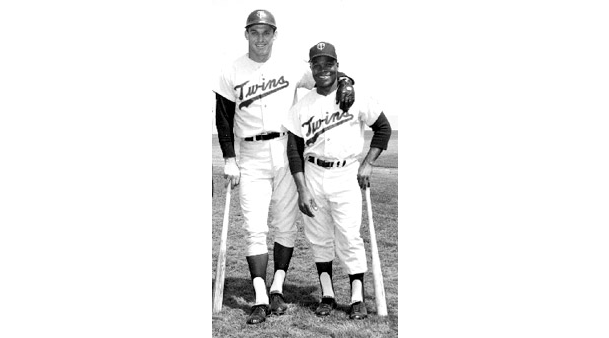MINNESOTA 11, BOSTON 5 IN BOSTON
Date: Thursday, July 22.
Batting stars: Bob Allison was 2-for-4 with two home runs (his thirteenth and fourteenth) and a walk, driving in five. Harmon Killebrew was 2-for-4 with a home run (his nineteenth) and a walk, scoring twice and driving in two. Tony Oliva was 2-for-4 with a double and a walk, scoring once and driving in three.
Pitching star: Mudcat Grant pitched 8.1 innings despite giving up five runs on twelve hits and three walks with three strikeouts.
Opposition stars: Carl Yastrzemski was 3-for-4 with a home run (his twelfth), a triple, and a double, driving in two. Jim Gosger was 3-for-4 with a triple, scoring once and driving in one. Tony Conigliaro was 1-for-3 with a walk and two runs.
The game: It was close most of the way. Killebrew singled in a run in the first, but Yastrzemski homered in the bottom of the first to tie it 1-1. Boston went up 2-1 in the second, but the Twins took the lead back at 3-2 in the third. Yastrzemski struck again in the bottom of the third, doubling home a run to tie it 3-3. Each team scored once in the sixth, with Killebrew hitting a home run and Gosger an RBI triple, to keep the score even at 4-4. The Twins finally took control of the game in the sixth. An error and a walk put men on first and second with two out. Oliva then hit a two-run double and, following an intentional walk to Killebrew, Allison hit a three-run homer to give the Twins a 9-4 advantage. The game was never close after that.
Of note: Zoilo Versalles was 2-for-4 with a walk, a stolen base (his thirteenth) and three runs. Rich Rollins was 1-for-4 with a walk and a run. Jimmie Hall was 1-for-5 with an RBI. Earl Battey was 0-for-2 with a walk.
Record: The win made the Twins 59-34. Baltimore lost 9-2 to Kansas City, increasing the Twins' lead to 4.5 games.
Notes: Yastrzemski nearly hit for the cycle, lacking only a single...Hall's average fell to .310 and Battey dropped to .303...Jim Gosger is one of those players whose career was a lot longer than his numbers indicate it should have been. He was at best a semi-regular outfielder, and that was only for two seasons, 1966-67. For his career, which covered ten seasons, he hit .226/.309/.331. Even granting that most of his career came in the 1960s, that's not very good. Yet, he played in 705 major league games and had 1,815 big league at-bats. One assumes teams viewed him as an excellent defender.

